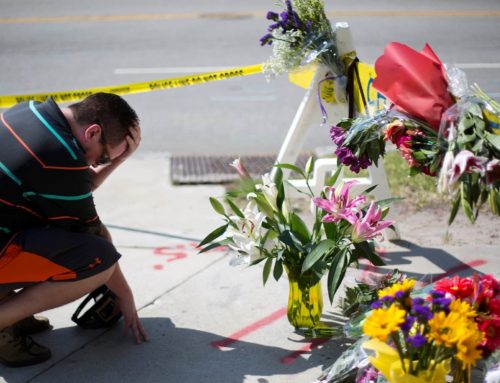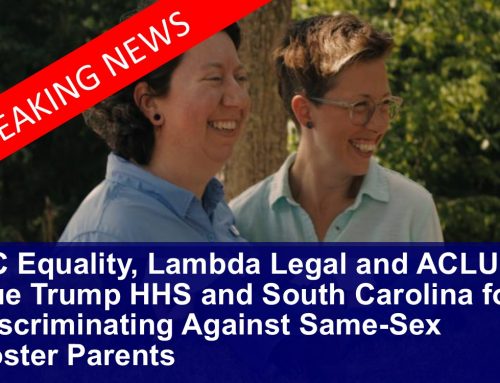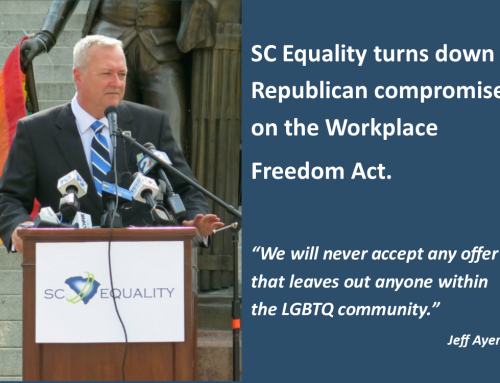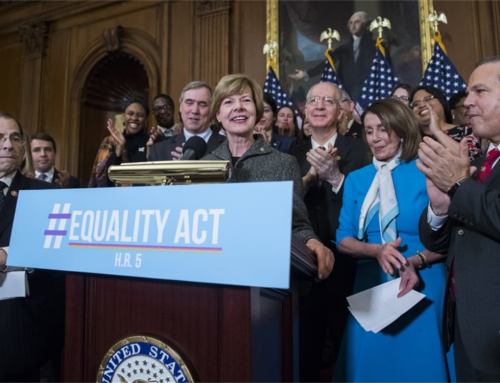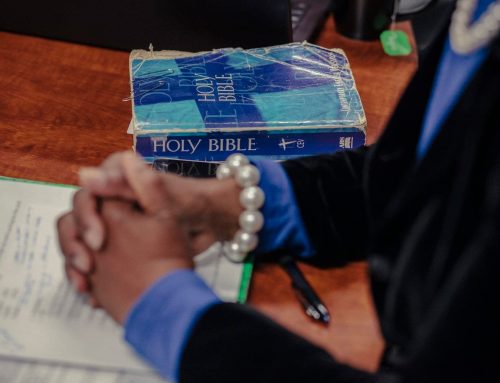SALT LAKE CITY — A federal judge Friday in Michigan allowed a lawsuit to move forward that experts say impacts faith-based charities across the country that provide adoption services as well as LGBT couples seeking to adopt and foster children.
The case, Dumont v. Lyon, focuses on whether faith-based adoption agencies that receive state funding can turn away same-sex couples for religious reasons.
It’s one of the first cases of its kind, and experts say it’s likely to set a legal precedent for courts and legislatures nationwide. The Deseret News covered the case in-depth in May.
In September 2017, the ACLU sued the state of Michigan on behalf of two same-sex couples and a former foster child, arguing that the state is violating the First Amendment’s establishment clause by allowing faith-based agencies that receive state funds to deny services to same-sex couples.
In July, the state and one of the faith-based adoption agencies, St. Vincent Catholic Charities of Lansing, Michigan, filed a motion to dismiss the case.
Judge Paul D. Borman of the Eastern District Court of Michigan denied the motion. He wrote that St. Vincent’s arguments that prohibiting the state from allowing the use of religious criteria would violate the agency’s First Amendment rights of free religious exercise and free speech were irrelevant to the plaintiff’s claims at this stage in the case, and he was not convinced that St. Vincent would prevail on that claim in the end.
“Much of St. Vincent’s argument relating to its First Amendment claims relies on matters outside the pleadings that the court cannot consider at this stage of proceedings and that in many instances directly contradict the allegations of plaintiffs’ complaint,” Borman wrote.
But the judge found the plaintiffs, Kristy and Dana Dumont, and Erin and Rebecca Busk-Sutton, had suffered “stigmatic and practical harm” as a result of the state entering into contracts with agencies that used religious criteria to exclude same-sex couples.
“The plaintiffs have adequately alleged injury in fact for both their establishment clause and equal protection claims,” wrote Borman. “This injury is at least ‘fairly traceable’ to the state defendants based on the allegations before the court.”
Leslie Cooper, deputy director of the ACLU’s LGBT & HIV Project, said she was “very happy” with the ruling.
Mark Rienzi, president of the Becket Fund for Religious Liberty that represented St. Vincent, didn’t comment directly on the ruling but said the lawsuit is aimed at “forbidding the state from working with faith-based agencies to help children in need.”
“Such a result would make it much harder for thousands of children to find the loving home they each deserve,” he continued in a statement. “Becket is fighting to make sure that doesn’t happen, and this is just one step along the journey in this case.”
The state of the Michigan had no comment on the ruling.
The Michigan case is one of two being played out in the courts right now, but experts say it could have a significant impact because of the constitutional arguments on both sides and the impact it will have on child welfare services nationwide.
The decision follows an August federal court ruling that found Catholic Social Services in Philadelphia couldn’t contract with the city as a foster care provider so long as the agency violated the city’s nondiscrimination policies by refusing to fully serve same-sex couples. Catholic Social Services says it would have to shut down its foster care program without the city contract.
Meanwhile, academics and advocates across the country are taking first steps toward finding a solution to this high-stakes clash that has dragged child welfare into the culture war over LGBT and religious rights.
A July conference at the Cato Institute aptly titled “Solomon’s Decree: Conflicts in Adoption and Child Placement Policy” brought together scholars and activists on both sides of the issue to find solutions outside of the courtroom.
“We can take the children out of culture wars where they do not belong,” Robin Fretwell Wilson, director of the Family Law and Policy Program at the University of Illinois College of Law, said at the conference. “We need to do this now.”
“The plaintiffs have adequately alleged injury in fact for both their establishment clause and equal protection claims,” wrote Borman. “This injury is at least ‘fairly traceable’ to the state defendants based on the allegations before the court.”
Leslie Cooper, deputy director of the ACLU’s LGBT & HIV Project, said she was “very happy” with the ruling.

Married couple Dana and Kristy Dumont are pictured at their home in Dimondale, Mich., on Tuesday June 19, 2018. The Dumonts hope to be able to adopt children together
“Most important is that the judge recognized the general principle that if a state is allowing the use of religious eligibility criteria to cast aside prospective families, that states an establishment clause claim,” Cooper said. “This is the first case that addresses that issue squarely, so it’s a big deal for that court to have said that.”
Mark Rienzi, president of the Becket Fund for Religious Liberty that represented St. Vincent, didn’t comment directly on the ruling but said the lawsuit is aimed at “forbidding the state from working with faith-based agencies to help children in need.”
“Such a result would make it much harder for thousands of children to find the loving home they each deserve,” he continued in a statement. “Becket is fighting to make sure that doesn’t happen, and this is just one step along the journey in this case.”
The state of the Michigan had no comment on the ruling.
The Michigan case is one of two being played out in the courts right now, but experts say it could have a significant impact because of the constitutional arguments on both sides and the impact it will have on child welfare services nationwide.
The decision follows an August federal court ruling that found Catholic Social Services in Philadelphia couldn’t contract with the city as a foster care provider so long as the agency violated the city’s nondiscrimination policies by refusing to fully serve same-sex couples. Catholic Social Services says it would have to shut down its foster care program without the city contract.
Meanwhile, academics and advocates across the country are taking first steps toward finding a solution to this high-stakes clash that has dragged child welfare into the culture war over LGBT and religious rights.
A July conference at the Cato Institute aptly titled “Solomon’s Decree: Conflicts in Adoption and Child Placement Policy” brought together scholars and activists on both sides of the issue to find solutions outside of the courtroom.
“We can take the children out of culture wars where they do not belong,” Robin Fretwell Wilson, director of the Family Law and Policy Program at the University of Illinois College of Law, said at the conference. “We need to do this now.”


